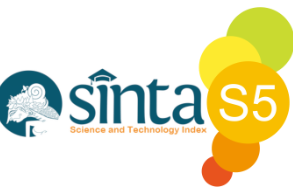Abstract
The top-down reading approach is generally applied in upper-intermediate to advanced ESL classes. The approach is thought to be too overwhelming for students who are at pre-intermediate, intermediate, or even beginner levels. Instructors may think that involving students’ background information or past knowledge in a passage topic will be burdensome for ESL students in a lower-level class. As a matter of fact, many students in any level of English class were experiencing or questioning the same issues in their routines. Separating students’ past knowledge from reading activity is impossible. This study was conducted to find out students’ past experience or prior knowledge on one issue and observe whether the reading passage might change or strengthen their ideas toward something they had in mind before the reading by filling out online pre- and post-questionnaires. The reading passage also contains follow-up questions as tools for students to measure their comprehension. The results of this study have shown that there are tendencies to alter ideas after the reading activity, based on post-activity questionnaires. In addition, performing the questions from the passage has provided information on students’ satisfying results in comprehension by calculating how many questions they answered correctly.
References
Abraham, P. (2002). Skilled reading: Top- down, bottom-up. Field notes, 10(2), 1 Ally, M. (2004). Foundations of educational theory for online learning. Theory and practice of online learning, 2, 15-44. Bahari, A., Zhang, X., & Ardasheva, Y. (2021). Establishing a computer- assisted interactive reading model. Computers & Education, 172, 104261. Bhandari, P. (2020). What is Quantitative Research? Definition, uses and methods. Scribbr Official Portal. Available on. Birch, Barbara M., and Sean Fulop. 2020. English L2 Reading: Getting to the Bottom. New York ; London: Routledge, Taylor et Francis Group. Flick, U. (Ed.). (2013). The SAGE handbook of qualitative data analysis. Sage Publication. Coiro, J., & Dobler, E. (2007). Exploring the online reading comprehension strategies used by sixth‐grade skilled readers to search for and locate information on the Internet. Reading research quarterly,42(2), 214-257. Fatemi, A. H., Vahedi, V. S., & Seyyedrezaie, Z. S. (2014). The effects of top- down/bottom-up processing and field dependent/ field independent cognitive style on Iranian EFL learners' reading comprehension. Theory and Practice in Language Studies, 4(4), 686. IELTS, C. E. (9). by Cambridge University Press and UCLES 2015, Test 1. Nagao, H. (2002). Using Top-Down Skills to Increase Reading Comprehension. Pang, E. S., Muaka, A., Bernhardt, E. B., & Kamil, M. L. (2003). Teaching reading (Vol. 6). Brussels, Belgium: International Academy of Education. Parsons, J., & Taylor, L. (2011). Improving student engagement. Current issues in education, 14(1). Rayner, K., Pollatsek, A., Ashby, J., & Clifton Jr, C. (2012). Psychology of reading. Psychology Press. Roberts, J. C., & Roberts, K. A. (2008). Deep reading, cost/benefit, and the construction of meaning: Enhancing reading comprehension and deep learning in sociology courses. Teaching Sociology, 36(2), 125-140. Seamon, D., & Gill, H. K. (2016). Qualitative approaches to environment–behavior research: Understanding environmental and place experiences, meanings, and actions. Research methods for environmental psychology, 115-135. Sunggingwati, D. and Nguyen, H.T.M., (2013). Teachers' Questioning in Reading Lessons: A Case Study in Indonesia. Electronic Journal of Foreign Language Teaching,10(1). Suraprajit, P. (2019). Bottom-up vs top-down model: The perception of reading strategies among Thai university students. Journal of Language Teaching and Research, 10(3), 454-460. Wang, Y., & Mark, G. (2017, February). Engaging with political and social issues on Facebook in college life. In Proceedings of the 2017 ACM Conference on Computer Supported Cooperative Work and Social Computing (pp. 433- 445).
Recommended Citation
Adelina, Erni and Hutabarat, Peny Meliaty
(2023)
"ONLINE REAL-LIFE SITUATION QUESTIONNAIRES TO DEVELOP TOP-DOWN READING SKILL,"
Jurnal Vokasi Indonesia: Vol. 11:
No.
1, Article 8.
DOI: 10.7454/jvi.v11i1.1194
Available at:
https://scholarhub.ui.ac.id/jvi/vol11/iss1/8
Included in
Accounting Commons, Arts Management Commons, Business Administration, Management, and Operations Commons, Business Analytics Commons, Educational Administration and Supervision Commons, Insurance Commons, Tourism and Travel Commons








